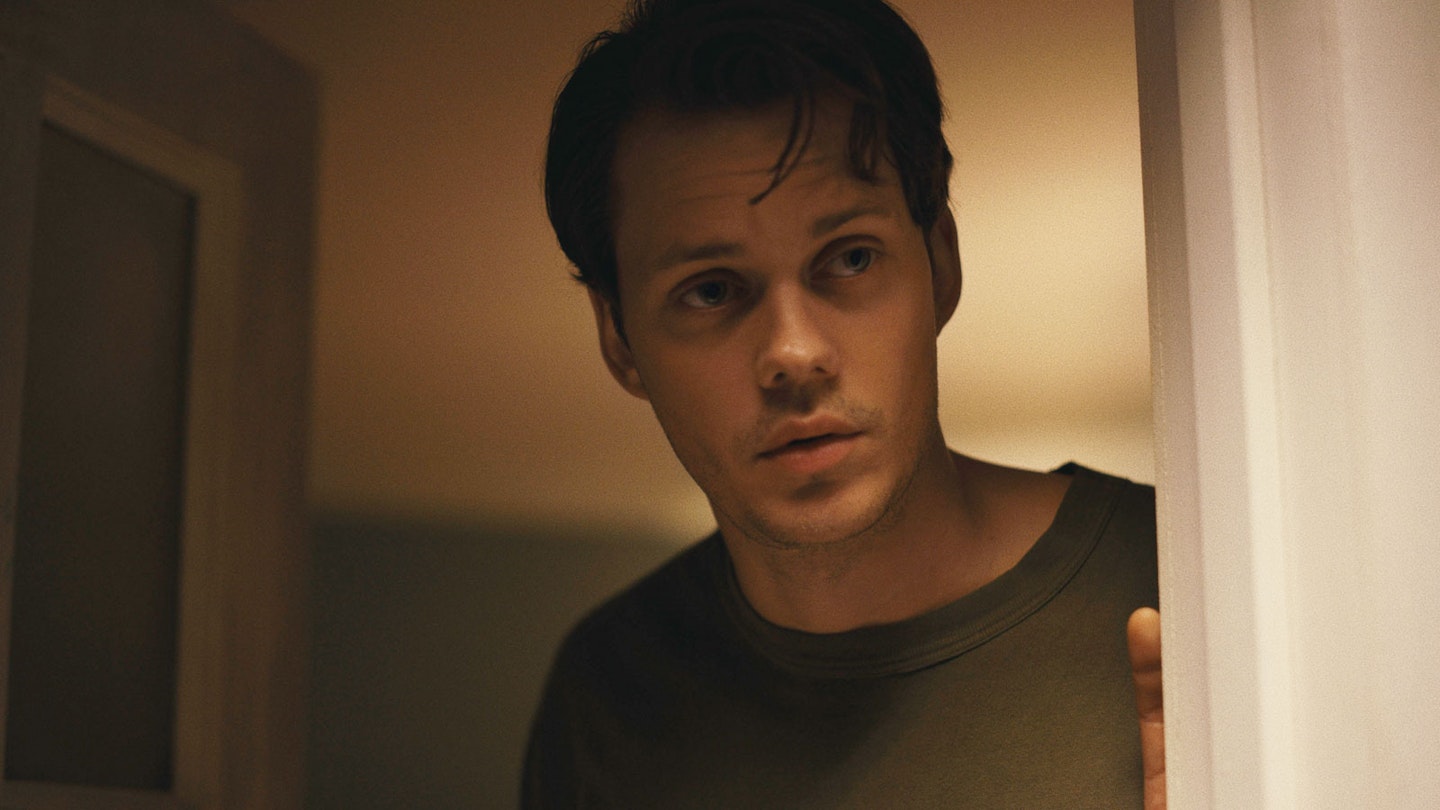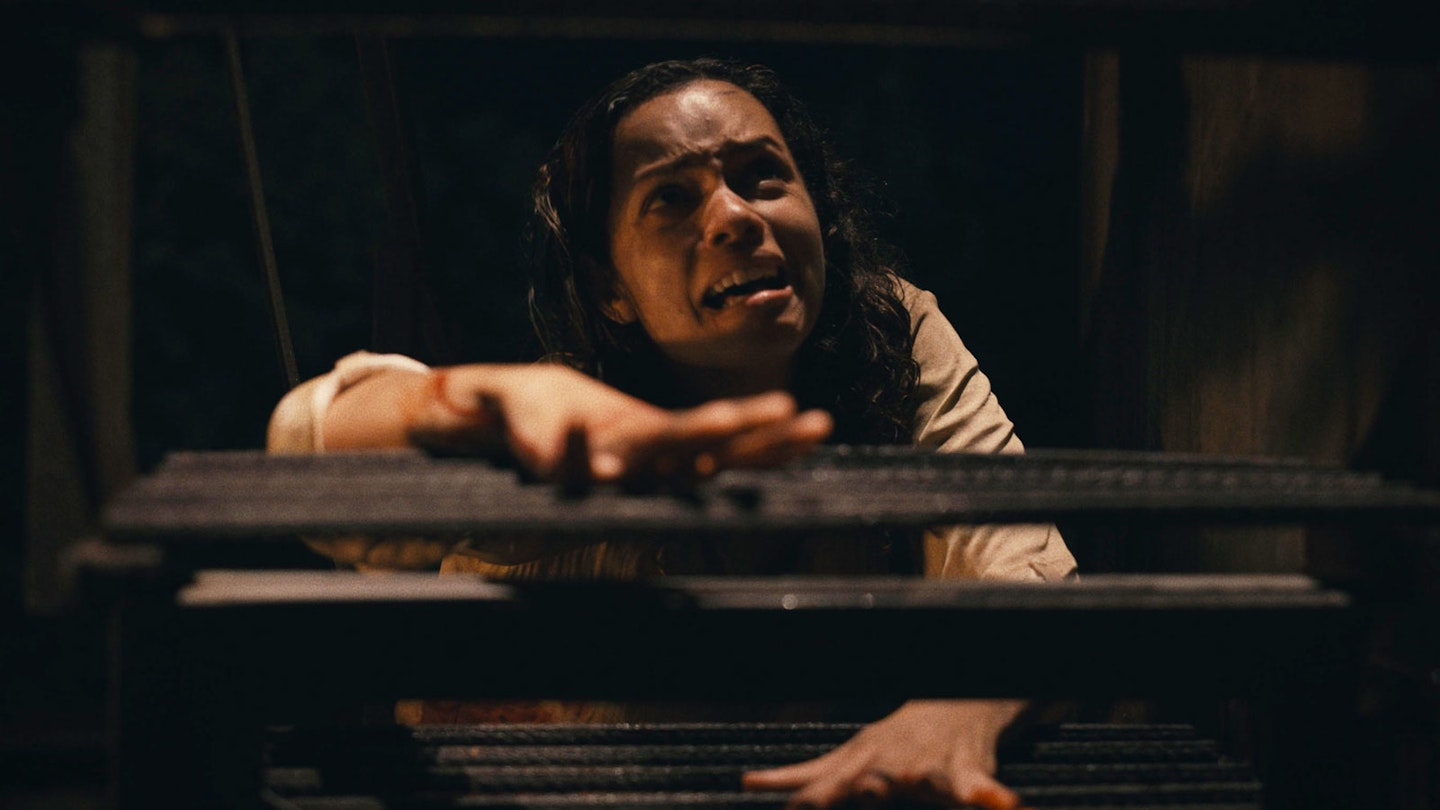Barbarian is best experienced with little foreknowledge. Writer-director Zach Cregger packs his first horror outing with the same twists and turns as are found in the bizarre sketches of his TV comedy troupe, The Whitest Kids U’ Know. Where a typical WKUK segment stretched and contorted its joke far past the point of absurdity, so too does Barbarian, with its tale of a homestay in a ravaged Detroit suburb which might be housing something sinister. When the story begins, a torrential downpour forces Tess (Georgina Campbell) to spend the evening with Keith (Bill Skarsgård), a mysterious tenant who supposedly double-booked her Airbnb.

Tess seems to be running away from someone who once hurt her, and Keith doles out his own advice on the topic — over a bottle of wine he seems adamant on opening. But as her stay wears on, Tess finds herself facing an increasingly disturbing scenario.
Cregger maintains a gripping intensity, while piling up surprises and cranking up aesthetic and spatial absurdities in the process.
Who owns this fancy house? What secrets are hidden behind its walls? These and many other questions are answered in wildly unexpected fashion. Cregger maintains a gripping intensity, while piling up surprises and cranking up aesthetic and spatial absurdities in the process. The movie’s daring swings, however, remain rooted in surprisingly thoughtful themes, from urban decay to the thorny nature of toxic relationships.
A tricky film to advertise without revealing its conceit — even its distributors have largely avoided disclosing the nature of Justin Long’s role — Barbarian plays like a midnight festival darling, bucking expectations while maintaining artistic finesse. Everything from the music cues (from composer Anna Drubich) to its lens choices (courtesy of cinematographer Zach Kuperstein) serves the gear-shifts, which transform it from a run-of-the-mill spooky-house saga into a beguiling, borderline stream-of-consciousness romp.
The film’s rapid swinging between styles can be distancing at times, with shifts in narrative focus that often arrive just when the tension begins to crescendo. But these mildly jarring resets are part and parcel of the film’s devious game of tonal hopscotch, and Cregger knows exactly how and when to twist each screw, reminding the viewer how funny, intense and disturbing a movie can be, all at the same time.
